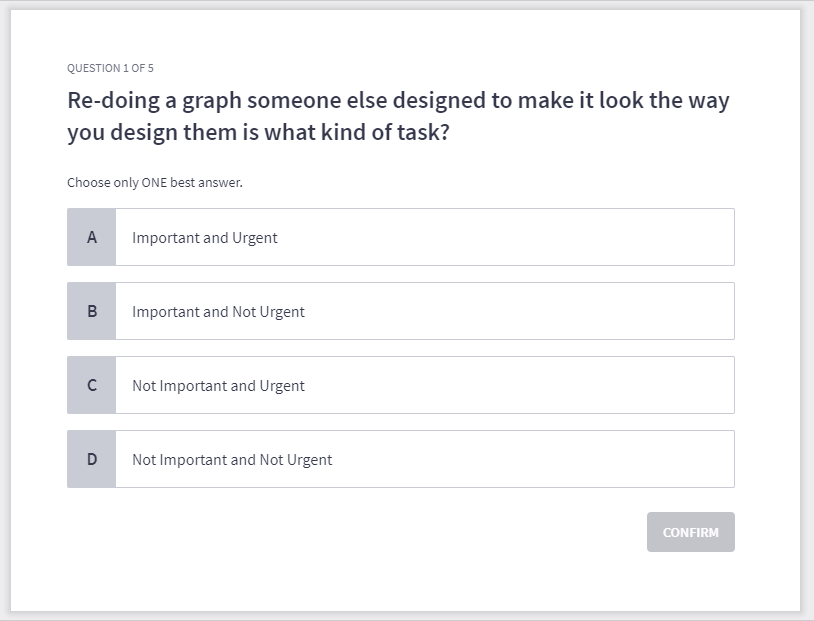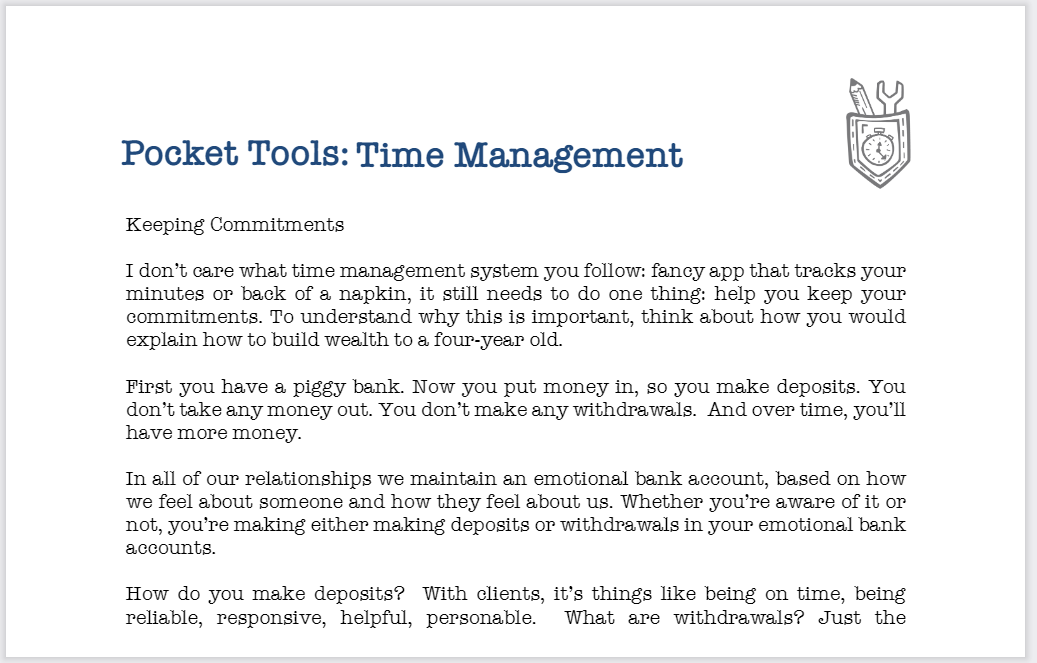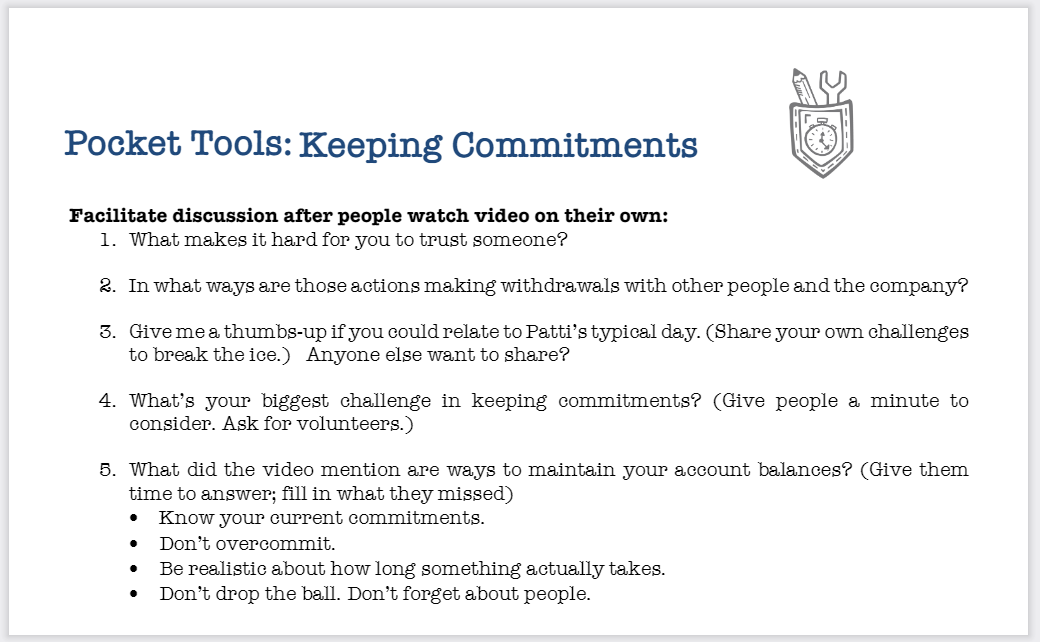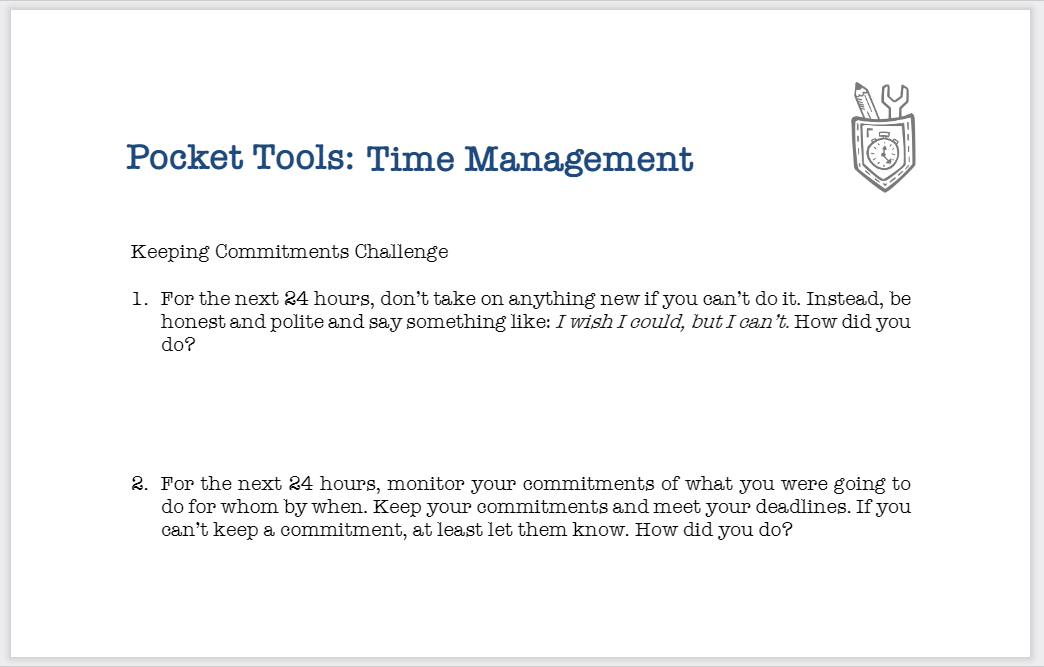
There is no shortage of critical skills you need to develop to become a successful leader: coaching excellence in staff, finessing difficult conversations, resolving conflict, building alliances and support with management, analyzing and managing risks, and looking strategically where the company should and could go. But without mastering time management first, you won’t be successful. Here are four reasons why time management should be your number one priority:
1. Get the right things done.
At the simplest level, successful time management is about being aware of how you’re spending your time and spending it on the right things. Without knowing how to plan and prioritize the multiple demands on your time, you’ll end up wasting time. The amount of time in a day is finite. If you’re consumed in responding to the urgent (e.g., emails, meetings) at the expense of the important, you won’t have time for the forward-leading tasks like planning the future, mentoring staff, and building your network.
2. Devote time to grow staff.
If you don’t know how to delegate effectively and let go of tasks that staff can do at a lower billable rate, everyone loses: you’re not growing, because you’re not spending time on more important leadership tasks; staff are not learning new skills and how to take on more responsibilities; and everyone in your company suffers from lower profitability as it costs more when you do lower-value work. There’s no forward movement if everyone is stuck in the way they’ve always worked. Coaching and mentoring people take intentional and conscious communication, and that means dedicating the time and not rushing it.
3. Bring your best efforts.
Not only do we have a limited number of minutes in each day, we also have a limited amount of energy to focus on tasks. Leadership tasks require us to push our capacity to analyze, process, and communicate. More is at risk, and our decisions carry more weight. When we don’t have good boundaries for our time, we expend cognitive and emotional energy on the busywork that could be better spent on higher-value tasks. Creative thinking, thoughtful analysis, and high-stakes conversations require a lot from us. They require us to be alert, focused, and patient, not tired, stressed out, and drained.
4. Protect personal down time.
If you don’t want to burn out, there needs to be a balance between the demands of work and a personal life. When you learn how to manage your time, you take time to exercise, unwind with family, and enjoy life. A career as a leader is unsustainable without learning how to say no, delegate, and focus your time on the right things. Stressed-out employees who don’t have balance can suffer health problems, become unproductive and disruptive, and often leave companies, which few companies can afford. By learning how to do more in less time, you’re protecting your schedule from more time in the office and less personal down time.
The focus of leadership is on the future: looking ahead to the potential and setting a vision. To make the vision a reality means managing each day to make steady progress toward the future. Effective time management is the key to accomplishing larger goals while maintaining a more balanced and productive life. Time and energy are finite. Learn how to make the best of them with seven micro lessons.




Recent Comments